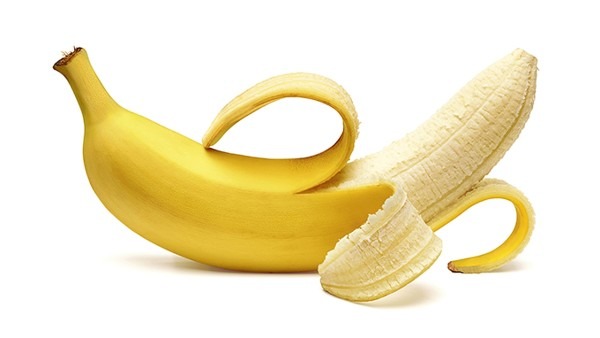If you're feeling down and looking for a natural way to boost your mood, science has your back. Certain foods can actually help fight depression by influencing brain chemistry, reducing inflammation, and supporting gut health—all of which play a role in mental well-being. Instead of reaching for another cup of coffee or a sugary snack, try incorporating these nine powerhouse foods into your diet to give your brain the nutrients it craves.
Fatty Fish: The Omega-3 Powerhouse
Salmon, mackerel, and sardines aren’t just delicious—they’re packed with omega-3 fatty acids, which are essential for brain health. Research shows that people with depression often have lower levels of these healthy fats. Omega-3s help reduce inflammation, support neurotransmitter function, and may even increase serotonin levels—the "feel-good" chemical in your brain. Aim for at least two servings per week to reap the benefits. If fish isn’t your thing, consider a high-quality algae-based omega-3 supplement.
Dark Leafy Greens: The Mood-Boosting Mineral Source
Spinach, kale, and Swiss chard are loaded with folate, a B-vitamin that plays a key role in dopamine and serotonin production. Low folate levels have been linked to depression, and studies suggest that increasing your intake can enhance the effectiveness of antidepressants. These greens are also rich in magnesium, which helps regulate stress hormones. Toss them into smoothies, salads, or sauté them with garlic for an easy brain-boosting side dish.
Fermented Foods: The Gut-Brain Connection
Your gut is often called your "second brain," and for good reason—about 90% of serotonin is produced there. Fermented foods like yogurt, kefir, sauerkraut, and kimchi are loaded with probiotics that support a healthy gut microbiome. A balanced gut can reduce inflammation and improve mood by optimizing serotonin production. If you're new to fermented foods, start slow to avoid digestive discomfort, and aim for a small serving daily.
Nuts and Seeds: The Snack-Sized Mood Lifters
Almonds, walnuts, flaxseeds, and chia seeds are tiny but mighty when it comes to fighting depression. They’re rich in healthy fats, magnesium, and tryptophan—an amino acid that converts to serotonin. Walnuts, in particular, contain high levels of alpha-linolenic acid (ALA), a plant-based omega-3 that supports brain function. Keep a mix of nuts and seeds on hand for a quick, satisfying snack that keeps your brain happy.
Berries: The Antioxidant-Rich Brain Protectors
Blueberries, strawberries, and blackberries are bursting with antioxidants that combat oxidative stress—a major contributor to depression. These fruits also contain flavonoids, which have been shown to improve cognitive function and mood. Plus, their natural sweetness can help curb sugar cravings, which can lead to energy crashes and mood swings. Add them to oatmeal, yogurt, or enjoy them fresh for a sweet, depression-fighting treat.
Dark Chocolate: The Guilt-Free Mood Enhancer
Good news for chocolate lovers—dark chocolate (with at least 70% cocoa) can actually help fight depression. It contains flavonoids, caffeine, and theobromine, which boost alertness and mood. It also stimulates the production of endorphins, the brain’s natural "happy chemicals." Just stick to a small square or two—too much sugar can have the opposite effect. Look for high-quality dark chocolate with minimal added ingredients.
Turmeric: The Golden Anti-Inflammatory Spice
This vibrant yellow spice contains curcumin, a compound with powerful anti-inflammatory and antidepressant effects. Studies suggest that curcumin can boost serotonin and dopamine levels while reducing inflammation in the brain. To maximize absorption, pair turmeric with black pepper and a healthy fat like coconut oil. Try adding it to soups, smoothies, or golden milk for a warming, mood-lifting drink.
Beans and Lentils: The Steady Energy Stabilizers
These plant-based powerhouses are packed with fiber, protein, and B vitamins—all of which help stabilize blood sugar and support neurotransmitter production. Unlike refined carbs that cause energy crashes, beans and lentils provide slow-burning fuel that keeps your mood steady. They’re also rich in magnesium and zinc, two minerals linked to lower depression risk. Add them to soups, salads, or make a hearty lentil stew for a comforting, brain-friendly meal.
Eggs: The Complete Protein for Brain Health
Eggs are one of the best sources of choline, a nutrient that supports brain function and neurotransmitter production. They’re also rich in vitamin D, which has been linked to lower depression rates, especially in people with deficiencies. The yolks contain most of the brain-boosting nutrients, so don’t skip them! Whether scrambled, poached, or boiled, eggs make an easy, affordable way to fuel your mental health.
While no single food is a magic cure for depression, incorporating these nutrient-dense options into your diet can make a real difference. Pair them with other healthy lifestyle habits—like regular exercise, quality sleep, and stress management—for the best results. And if you're struggling with persistent depression, don’t hesitate to reach out to a healthcare professional. Sometimes, food is just one piece of the puzzle, but it’s a delicious and empowering place to start.
























